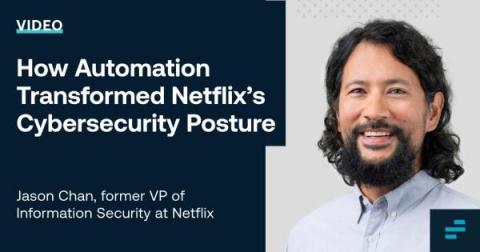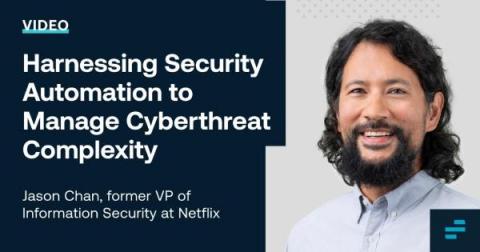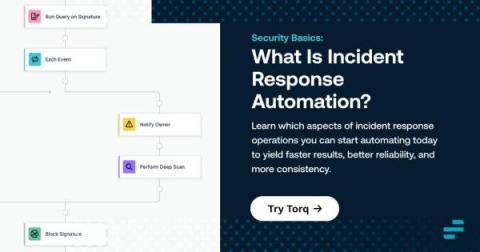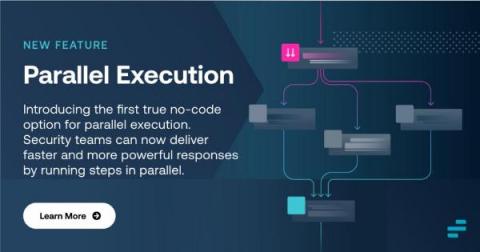Security | Threat Detection | Cyberattacks | DevSecOps | Compliance
Latest Posts
Jason Chan on How Automation Transformed Netflix's Cybersecurity Posture
Jason Chan, a key member of the Torq Advisory Board, has spent more than 20 years working in pivotal cybersecurity roles. One of his most important positions was leading the information security organization at the video streaming behemoth Netflix for more than a decade. His Netflix team set the bar extraordinarily high, focusing on sophisticated risk assessment and management, and compliance management strategies and approaches.
How to Build an Automation Strategy and Roadmap
“If you fail to plan, you plan to fail,” said Benjamin Franklin. These words cannot be overstated in most business fields, especially when it comes to automation. Process automation has the potential to enhance operations in most organizations, but problems can emerge when they don’t plan and strategize around their automation objectives.
When to Automate and When Not to Automate
Everyone loves automation, and it can be easy to assume that the more you automate, the better. Indeed, falling short of achieving fully autonomous processes can feel like a defeat. If you don't automate completely, you're the one falling behind, right? Well, not exactly. Although automation is, in general, a good thing, there is such a thing as too much automation. And blindly striving to automate everything under the sun is not necessarily the best strategy. Instead, you should be strategic about what you do and don't automate.
What Is MITRE D3FEND, and How Do You Use It?
MITRE is a world-renowned research organization that aims to help build a safer world. It is probably best known in the information security industry for being the organization behind the industry-standard CVE (Common Vulnerabilities and Exposures) list. Each entry on the list is supposed to include an explanation of how the vulnerability could be exploited. These attack vectors are tracked and defined in another well-known knowledge base called ATT&CK, which is also maintained by MITRE.
Jason Chan on Harnessing Security Automation to Manage Cyberthreat Complexity
Torq is extremely proud to have Jason Chan on our advisory board. Jason has more than 20 years of experience working in cybersecurity. He’s one of the world’s leading experts in adopting security automation, cloud security, and enhancing security in modern software development practices. Jason’s most recent career experience was leading the information security organization at Netflix for more than a decade.
Security Basics: Incident Response and Automation
Incident response is one of the most challenging tasks that IT teams face. It's challenging not just because it typically involves many stakeholders and moving pieces, but also because teams usually face pressure to respond as quickly as possible. That's why investing in incident response automation is a wise choice. Although it may not be possible to automate every aspect of every incident response workflow, being able to automate at least the major elements of incident response will yield incident management processes that are faster, more reliable, and more consistent.Keep reading to learn about the components of incident response and which incident response activities to start automating.
Keeping Your Organization Secure with Limited SOC Resources
Organizations face a growing threat from cybercriminals while struggling to find qualified security professionals who can protect their infrastructure and sensitive data. This blog will explore the concept of a Security Operations Center (SOC) and the role of SOC analysts in securing your organization. We will also discuss how your organization can leverage automation to improve SOC effectiveness and fill in the gaps when you cannot support a full staff of security professionals.
How Wiz and Torq Combine to Mitigate Existential Cloud Security Threats
A single cloud security incident can stop an enterprise in its tracks, sometimes resulting in irreparable damage to its operation, reputation, and customer loyalty. One key strategy for preventing such incidents is combining complementary cybersecurity tools to defeat threats at scale. A coherent Cyber Security Incident Response Planning (CSIRP) approach requires enterprises to select and integrate the right tools before a security incident occurs.
Torq Delivers on the Promise of Parallel Execution
Security operations professionals are constantly being pushed to the edge of their capacities. They’re dealing with endless manual processes and managing tasks sequentially, because of the limitations of their security tools and options. They’ve dreamed of being able to execute more tasks simultaneously to quickly enrich, analyze, contain, and resolve security threats. Today, Torq is proud to introduce Parallel Execution, which makes those capabilities a reality.











